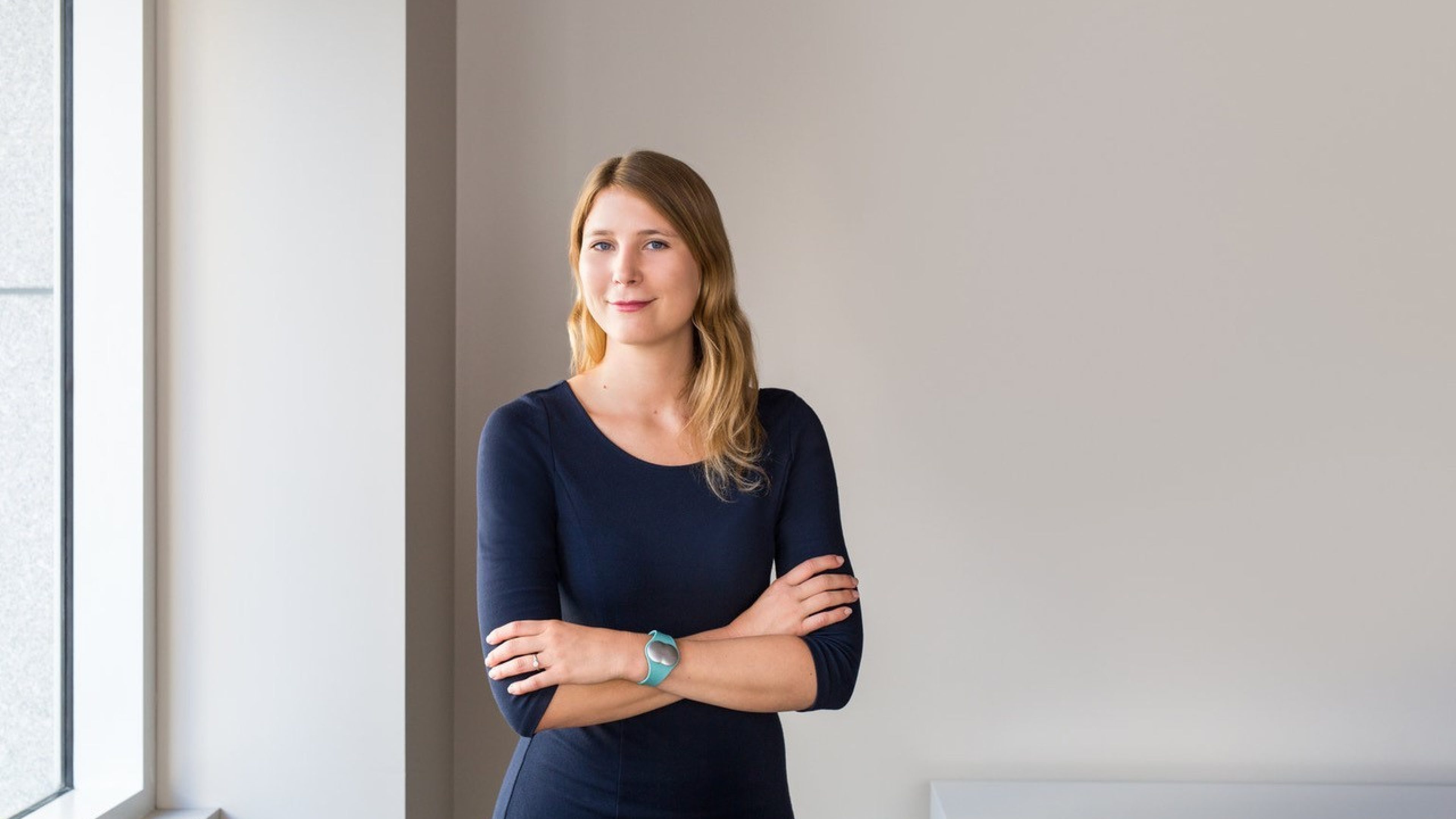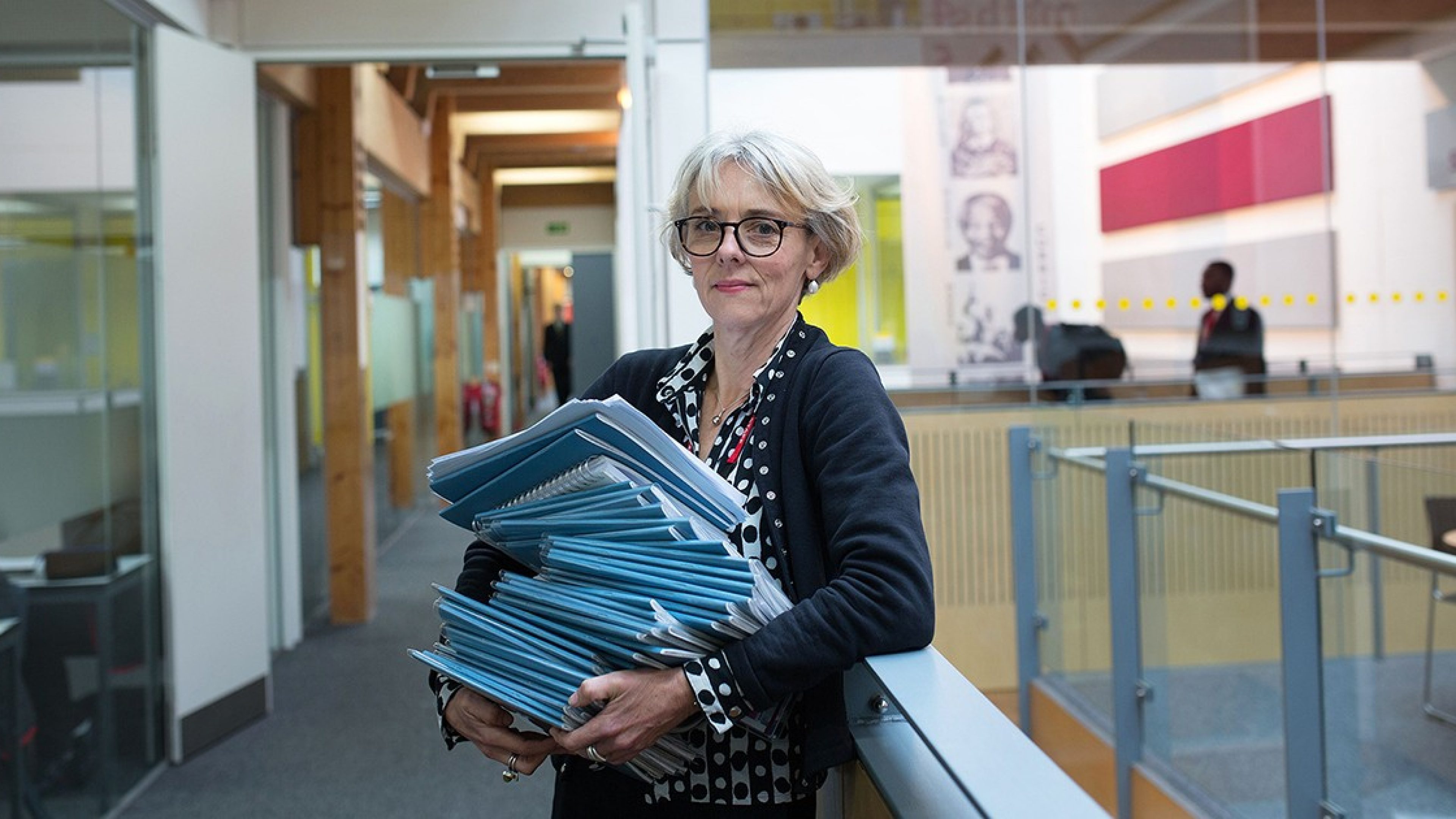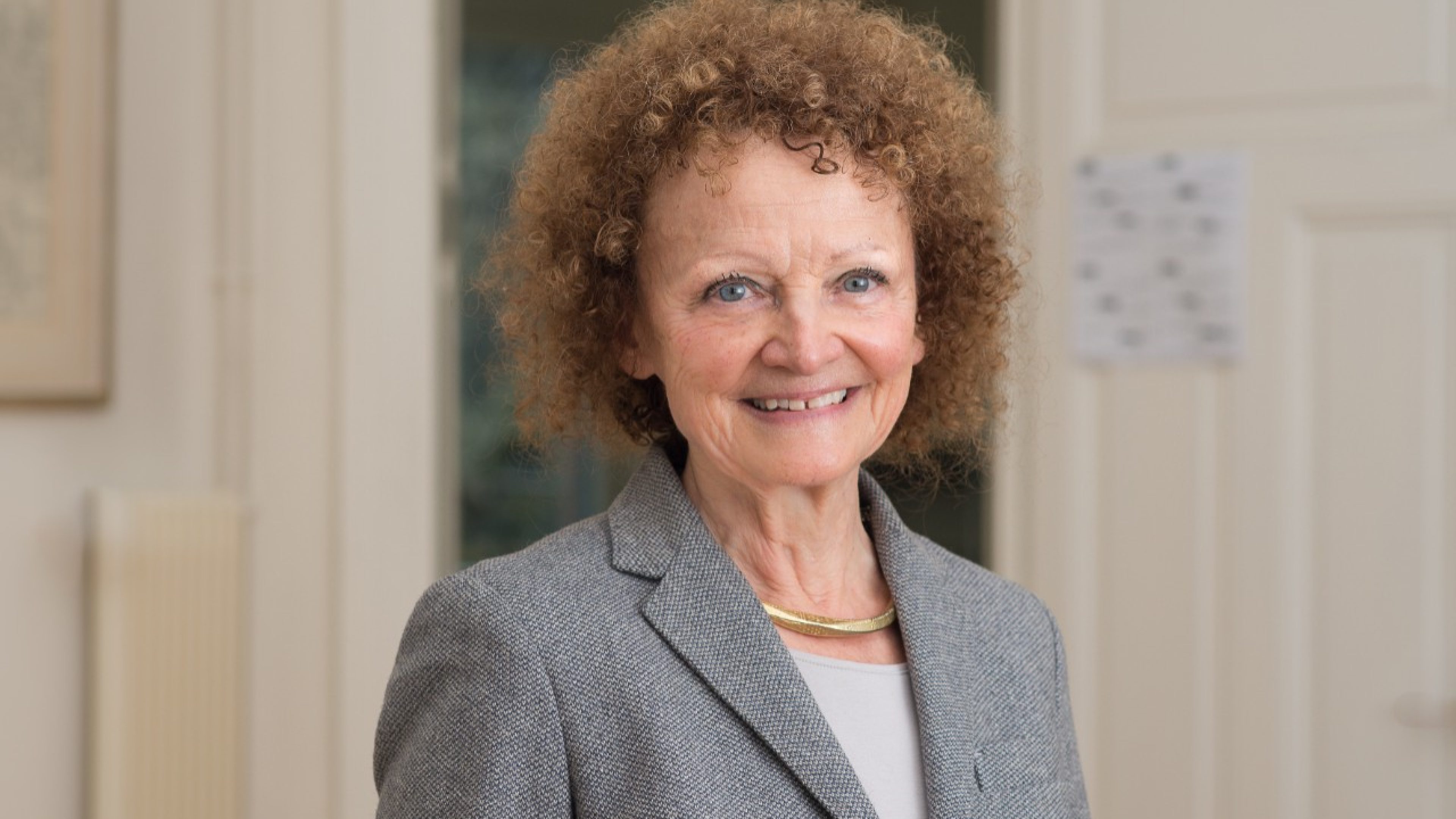Stefanie Weber, the new Head of Group HR at Swiss Life, explains in an interview what she sees as the role of managers today, what impact the coronavirus is having on the world of work and how changes in professional direction have shaped her own career.
Stefanie Weber, you started as a trainee at what was then known as Rentenanstalt in 1995. You have led HR at Swiss Life at the Group level since the beginning of this year. Did you plan this career path?
Actually, I wanted to be a vet, so I deviated from my original plan a bit (laughs). I’m someone who enjoys assuming responsibility, who's interested in a lot of things and who likes to be an active participant and help shape things. I’ve been guided by these principles. Consequently, many of my career moves came automatically. I don’t think you can plan every last detail of your career. I consider the fact that my CV includes a few changes of direction as a major asset. I have worked in entirely different areas during my time at Swiss Life. I started in the Swiss Market. Subsequently, I worked at what was then Swiss Life Belgium, in the International Division and in Group Finance & Risk, among other places. These experiences help me greatly in my current role because they provide me with a broad understanding of the various issues facing our company.
Non-linear CVs – such as yours – are becoming more common, and professional development paths are now less clearly mapped out. How is Swiss Life taking account of this trend?
We are now seeing people embarking on new paths more than ever before. Such changes of direction mean rethinking professional life. At Swiss Life we have launched several measures as part of the Group-wide initiative “Actively shaping your career”, the aim of which is to help people to refocus their careers. In my view, there is still room for improvement in terms of social recognition. Questions still pop up when, for example, a man decides to reduce his level of employment on starting a family, or if someone wants to give up management responsibility. All employees should have the freedom to adapt their professional situation to the phase of life they are in and, by doing so, to balance their personal and professional lives. I see that as being closely connected with self-determination, which is at the heart of our purpose.
Swiss Life has staked out a strong position, both internally and externally, with its purpose. To what extent does Swiss Life help in its role as employer?
We convey a positive and attractive self-conception with a self-determined life as our purpose. I am confident that this approach makes a major contribution towards attracting the right employees. People are increasingly looking for work that provides more meaning, work that meets higher objectives and is compatible with their personal values. Our purpose is an important focal point in this regard.
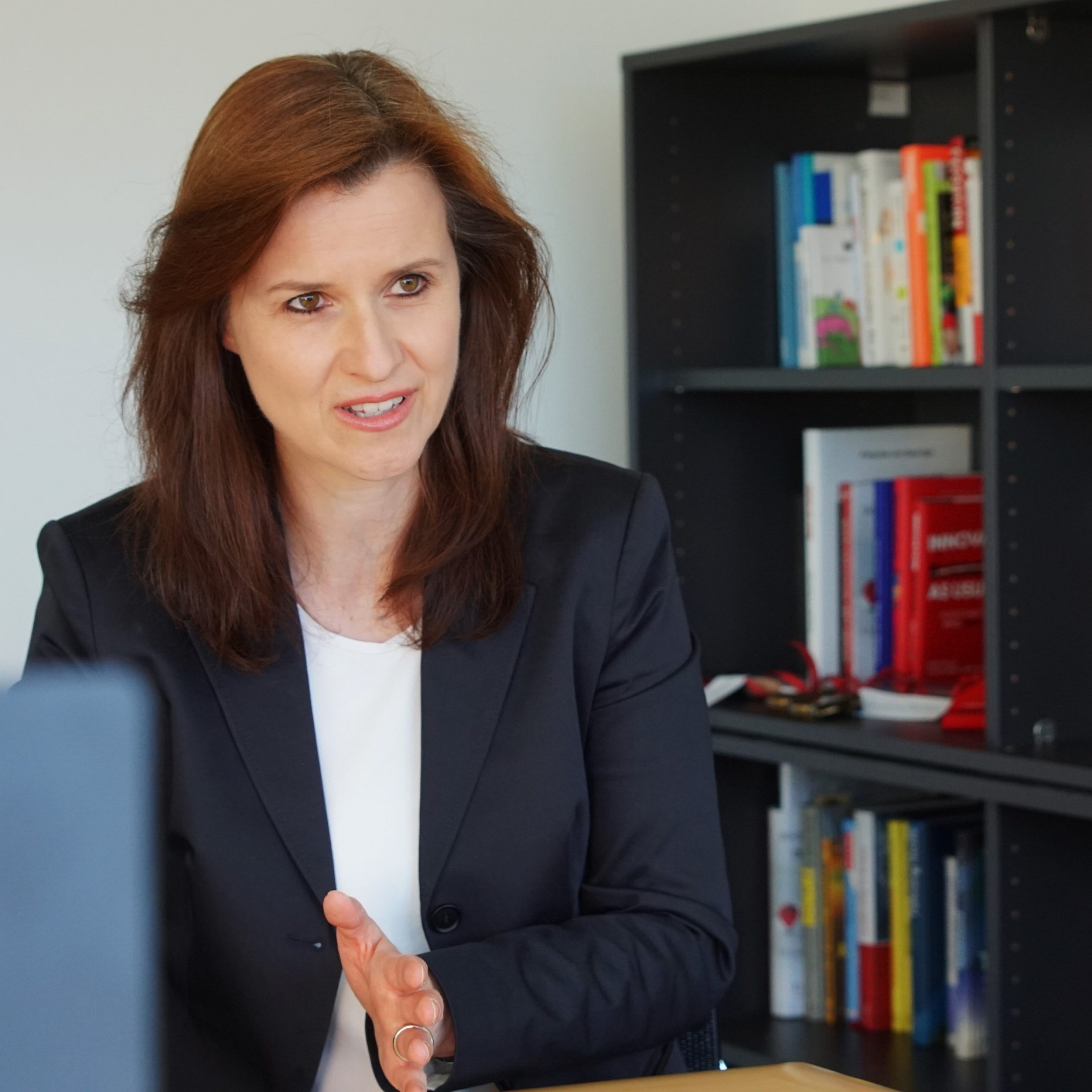
The understanding of management is changing. If you read about this issue, you could get the impression that the traditional model of a manager is outdated. Do you share this assessment?
Yes, I think the traditional approach of “I’m the boss and I say what goes” is definitely outdated. Modern managers have various roles, including the role of coach and mentor, in particular. A successful manager knows how to coordinate well, creates the necessary framework conditions and provides his or her employees with the required degree of autonomy. But they also know when they need to make decisions or intervene. The role of a manager is strongly characterised by the way we collaborate. I believe that in future we will work together more in team networks, including outside the scope of projects. This means that employees will work together with their colleagues on certain issues across departments and functions while simultaneously being part of a fixed organisational structure. Of course, this will require the requisite infrastructure, such as mobile forms of working.
Digital tools have made the workplace increasingly dynamic. What can we do to take advantage of the positive aspects of this increased flexibility while at the same time meeting the need for rest, downtime and time away from work?
On the one hand, managers need to communicate their expectations. If, for example, it is clear that evenings and the weekend are free time when employees are not expected to answer e-mails, the demarcation between work and free time will be much easier. Of course, this will only work if managers exemplify this themselves as well. At the same time, however, employees must assume responsibility when it comes to planning periods of rest and ensuring they take time off to counteract the stress of work.
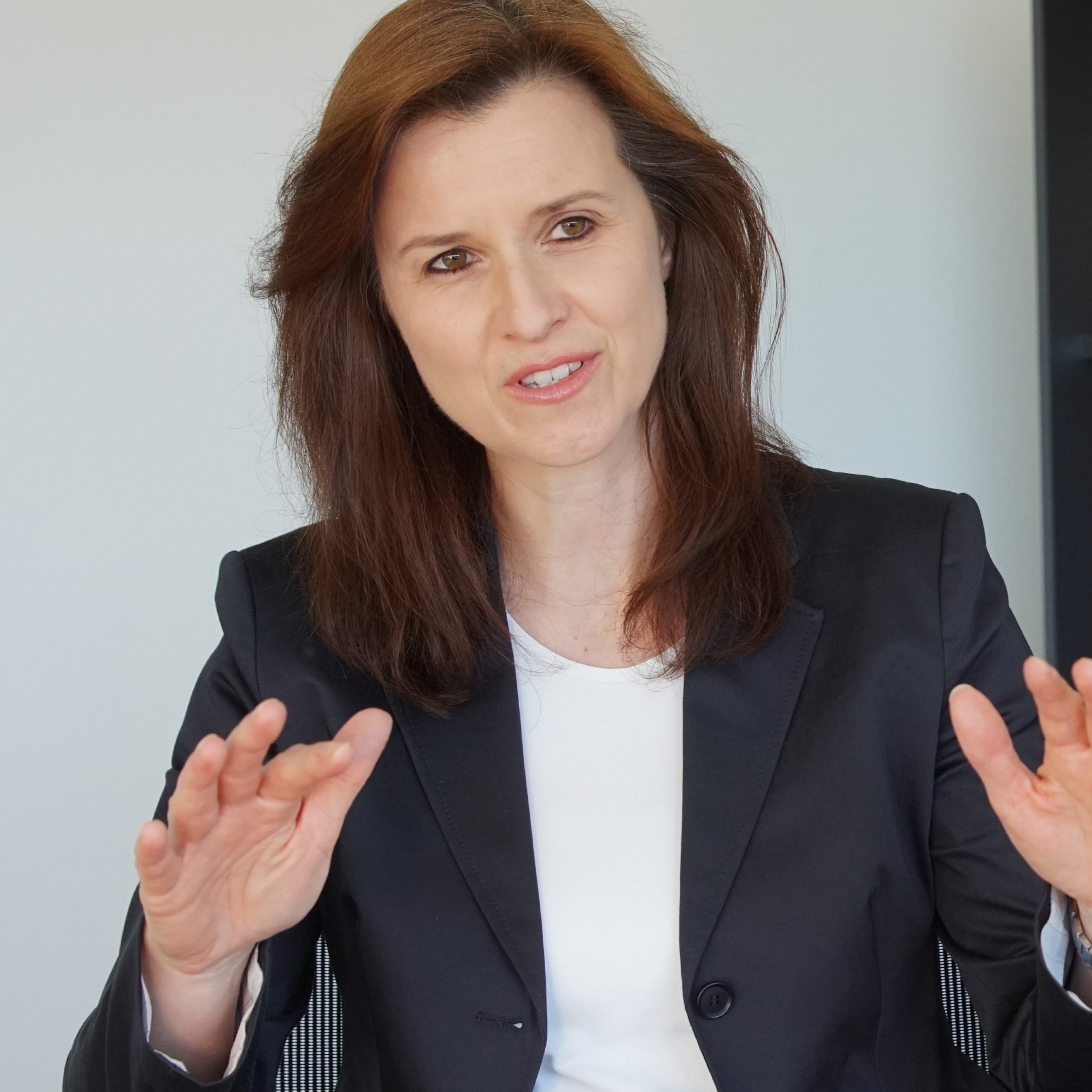
The coronavirus is turning the world upside down. What impact is this having on the world of work?
The coronavirus is at present truly forcing us to change our lives – including our working lives. Working models such as mobile forms of working and the available technological resources facilitate flexibility in terms of time and location in our daily working life. However, we have never made use of mobile working to this extent. The core goal is for us to be able to exercise our functions to the best possible degree at all times and everywhere. In this respect I consider the coronavirus as a stress test for the world of work in which all are called upon to create and make use of optimum underlying conditions for flexible working and cooperation.

